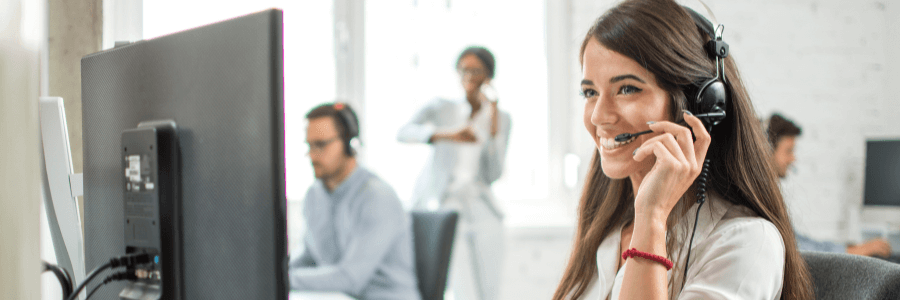The Top 3 Benefits of 401(k) Plans for Employers

Quick look: 401(k)s are the most popular retirement plans in the U.S. While their advantages for employees are well known, they also have tremendous benefits for business leaders. Here, we explore the many potential benefits of 401(k) plans for SMB employers, including improved employee retention rates, more successful recruiting, and decreased tax liability.
When people think of a retirement savings plan, many think of a 401(k). And that makes sense, as 401(k) plans are the most common employer-sponsored defined contribution (DC) plan in the U.S.
401(k)s help employees prepare for a comfortable retirement and grow their nest egg faster than if they were to put away funds in a traditional savings account. Additionally, they can aid employers in recruiting and retaining top talent and potentially decrease their tax liability.
All about 401(k)s
Many people are familiar with a 401(k) but may not be aware of the latest trends related to these popular accounts. Below, review what a 401(k) is, the participation rates across different generations, and their specific motivations for choosing to invest in these plans.
What is a 401(k)?
According to the IRS, “A 401(k) is a feature of a qualified profit-sharing plan that allows employees to contribute a portion of their wages to individual accounts.”
There are two types of 401(k) accounts, a traditional 401(k) and a Roth 401(k):
- Traditional 401(k): Workers’ elective salary deferrals are excluded from their taxable income. When traditional 401(k) funds are withdrawn in retirement, the withdrawals are taxed as ordinary income, meaning income tax must be paid on original contributions and earnings.
- Roth 401(k): Since after-tax dollars fund Roth 401(k)s, retirement withdrawals, including contributions and earnings, are tax-free.
Employers may also contribute to their staff’s accounts, whether they’re traditional 401(k)s or Roth 401(k)s.
How much can be contributed to a 401(k)?
The IRS sets a maximum contribution limit for 401(k) accounts each year. In 2024, the limit is $23,000.
According to the Investment Company Institute (ICI), Americans held $10.6 trillion in DC plans at the end of 2023. These funds accounted for 28% of the nation’s $38.3 trillion in retirement assets and approximately 9% of household financial assets.
Who has a 401(k)?
The ICI reported the following age breakdown of 401(k) participants:
- 20s or 30s: 40% of participants
- 40s: 23% of participants
- 50s: 23% of participants
- 60s: 14% of participants
Also included was data on account owners’ annual household income levels:
- Less than $25,000: 5% of participants
- $25,000-$99,999: 43% of participants
- $100,000+: 52% of participants
Further, the ICI found that 90% of 401(k) plan participants received employer contributions.
Benefits of 401(k)s for employees
The majority of those with employer-sponsored retirement accounts are satisfied with them. The ICI research revealed that:
- 88% agreed that their plans helped them “think about the long term, not just my current needs.”
- 87% agreed that “payroll deduction makes it easier for me to save.”
- 84% agreed their plan “offers me a good lineup of investment options.”
- 82% agreed that “the tax treatment of my retirement plan is a big incentive to contribute.”
- 80% agreed that “knowing that I’m saving from every paycheck makes me less worried about the short-term performance of my investments.”
What are the benefits of 401(k) plans for employers?
While the advantages of 401(k)s for employees are vast, offering a plan also benefits small- and medium-sized business (SMB) employers in the following ways:
1. Boost employee retention
A recent study has confirmed that 401(k) plans are powerful retention tools for SMB employers.
The report found that providing a retirement plan can help SMBs save more than $100,000 in turnover costs each year, a 2x return on the initial cost of offering a 401(k). This makes sense when considering that recruiting and onboarding a replacement employee costs about $4,700 per hire.
Companies should note that if they don’t include a 401(k) plan in their benefit offerings, many employees will switch to organizations that do. Forbes reports that 62% of workers consider the availability of a retirement plan when deciding whether to accept or remain in a job, and 76% are likely to be attracted to companies that care more about their financial well-being.
2. More effective recruitment (especially of younger workers)
401(k) plans can be a helpful recruiting tool for SMBs competing with larger organizations. The Transamerica Center for Retirement Studies’® 24th annual retirement survey found that 87% of Millennials and 74% of Gen Z think retirement benefits are a major factor in deciding to work for a prospective employer.
While they may be further from retirement than their older colleagues, younger employees care about preparing for their golden years and want to receive retirement advice and use savings tools from various sources. As stated above, 40% of 401(k) plan participants are younger than 40.
Charles Schwab explored this trend in its recent 2024 Schwab Modern Wealth Survey. Key findings include:
- 62% of Millennials and 60% of Gen Z believe they are more or as likely as older generations to reach their financial goals.
- On average, Millennials started investing at age 25, and Gen Z began at age 19.
- The top three reasons millennials feel more confident in their investment strategy are:
- Readily available financial advice and knowledge (46%)
- Easily accessible investments (35%)
- Easy-to-find research about companies and investments (34%)
- And the top three reasons Gen Z feels more confident are:
- Learning about investing at a young age (43%)
- Readily available financial advice and knowledge (38%)
- Easy-to-find research about companies and investments (35%)
3. Unlock tax advantages
Another significant benefit of SMBs offering employees a 401(k) plan is potential tax savings.
The SECURE Act, which was signed into law in December 2019, is designed to help SMBs provide their workers with less expensive and easy-to-manage “safe harbor” retirement plans. One way the Act does this is by increasing the business tax credits available to businesses setting up 401(k) plans for the first time.
Before the Act was established, the business tax credit for the first three years of an employee 401(k) plan equaled 50% of qualified startup costs (not exceeding $500). This number has since increased tenfold for SMBs employing between one and 100 workers.
The SECURE Act also states that businesses that match 401(k) contributions for employees may qualify these as tax-deductible business expenses, further reducing their tax liability.
Business owners should take note that SECURE Act 2.0 was recently written into law and includes the following changes:
- Enhanced tax credits for SMBs setting up retirement savings for employees (credits could increase to 100% of qualified costs for SMBs with up to 50 employees instead of the current 50%, and the maximum credit potential could jump from $500 to $5,000).
- The opportunity for companies to match contributions to employee retirement savings accounts based on their workers’ student loan payments.
- An increase in catch-up contributions for older workers.
- Qualification of part-time workers for employer retirement plans.
- Starting in 2025, businesses that offer 401(k) and 403(b) plans must automatically enroll eligible employees and provide a contribution rate of at least 3%.
Click here to view the complete SECURE 2.0 Act >>
Making the most of your benefits package
There are many advantages of a 401(k) for employees and employers alike. But that doesn’t mean selecting, administering, and managing them is simple. Many business leaders feel stretched thin due to today’s competitive labor market, economic uncertainty, and company culture challenges.
A professional employer organization (PEO), like ExtensisHR, can help. ExtensisHR’s dedicated employee benefits experts are seasoned in benefits administration and management. And to help SMBs attract and retain employees of all ages, ExtensisHR provides a comprehensive portfolio of multigenerational benefits, including:
- 401(k) retirement plans and financial planning services
- Medical, dental, and vision insurance with telehealth coverage
- Student loan repayment programs
- Supplemental insurance (i.e., accident insurance, critical illness insurance, and hospital indemnity insurance)
- Family-building support
- Pet insurance
- And more
The right benefits provide perks to both workers and their employers. Explore ExtensisHR’s employee benefits solutions now, or contact our experts to get started today.



